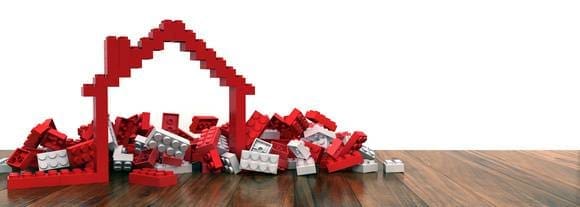1. How long does the home-buying process typically take?
The duration of the home-buying process depends on your situation. A finance pre-approval (which your Rise High mortgage broker can help you obtain) is valid for 3 months, which gives you a nice period to explore the market.
Overall, it can take a few months to find a property and settle. That’s why we recommend you start the process even before you feel ready! Getting your foot in the door is something that will benefit you when you are actually ready to purchase.
2. How do I know if the house I want is in a good neighbourhood?
In our digital world, there’s so much online information about the neighbourhoods in South Australia that you could buy in to. While this can provide helpful guidance, it’s important to remember that these sources could be outdated or biased, so your own research is crucial!
We encourage you to familiarise yourself with the neighbourhood you’re interested in by visiting local cafes, restaurants or facilities. Consider letting your experience guide your decision-making.
3. How do I negotiate the best price for a house?
To negotiate the best price for a house, it’s helpful to have a bit of market intel. When you find a house you’re interested in, reach out to your Rise High mortgage broker. They can give you a free property report with insights into what the previous owner paid for the property, what other houses in the area have sold for, and an approximate value of the property. This makes sure you can make a competitive offer.
4. What documents are required during the home-buying process?
As banks want to assess your income, expenses, assets and liabilities, there’s quite a few documents that are needed. However, this varies slightly by bank so your Rise High mortgage broker can help you navigate this smoothly.
Essentially, the banks need evidence that you’re earning income. Payslips, bank statements and ID are a few examples of what they look for.
5. Could I apply for first home buyer grants or stamp duty concessions?
The eligibility criteria for first home buyer grants or stamp duty concessions can be quite strict, and change between each scheme. We can help you determine your eligibility.
6. What are the benefits and drawbacks of buying vs. renting?
Whether you rent or buy, you’ll be making regular payments. The difference is, renters contribute to paying down their landlord’s mortgage, while home owners pay off their own.
7. Should I build or should I buy?
There are pros and cons of building and buying your home. While there are more government grants and schemes for builders, the process can take years. If you’re seeking a house sooner, rather than later, purchasing an established one may be your best option.
8. How do I understand the terms of my mortgage agreement?
For first home buyers, your mortgage agreement may be one of the first legal contracts you enter! When you’re a client at Rise High, your broker will go through the agreement with you, ensuring the information is correct and you completely understand what you’re signing.
9. What should I look for during an open house?
In an open house, you should make sure you’re happy with the layout of the house and the location. Cosmetic changes such as the colour of the walls can be made fairly cheaply, but structural changes cost more.
Enlisting a building inspector can also help you spot issues you may otherwise miss!
10. How do I increase my budget?
Budgets are different for everybody. As a client of Rise High, you’ll work with your mortgage broker to determine what your budget is. This will influence whether a property is considered affordable or not to you.
The universal tip to increase your budget is to reduce discretionary spending. This involves identifying your wants (dining out, a holiday etc.) and your needs (groceries etc.), and limiting unnecessary spending as much as you can.
Our budget planner and spending tracker is free to download, and can help you organise your finances.
Do you still have burning questions you want answered? Check out our YouTube video above for the full Q&A!




